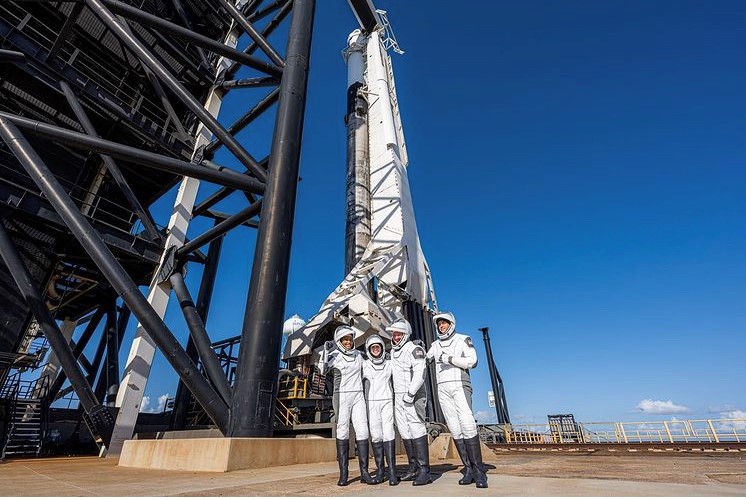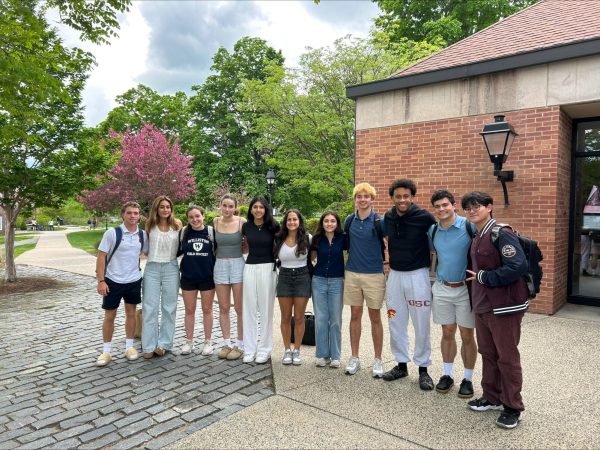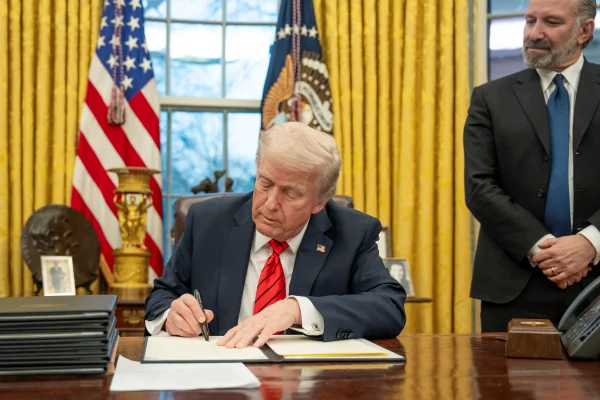Space Travel Now a Reality for Civilians
“If we think about transportation, the Wright brothers, Ford, really whoever invented the car; they always started at a place that is so far away from where we are now. This is exactly the same,” said Kenneth Choo, astronomer and science teacher.
For the past few days, humanity has been exposed to a whole new level of knowledge and exploration as space travel has takes a huge leap. SpaceX’s latest mission proves space travel is possible for ordinary people, as four non-experts recently ventured into outer space and landed safely in Florida.
After orbiting the Earth for three days, the Inspiration4 crew reached the Florida Coast at 7:06 pm on September 18, where they were welcomed as the leaders and visionaries of a new era. Commanded by Jared Isaacman, passengers Hayley Arceneaux, Chris Sembroski and Dr. Sian Proctor flew on the Dragon. The mission took the four civilians into a journey 575 km from Earth, successfully raised $210 million dollars for the St. Jude Children’s Research Hospital for kids with cancer.
Ever since the first launch in 1957, governments have continuously sent rockets into space. Throughout the years, professionals have pushed the limits as human space travel, moon landings, technology based exploration, and more, became a reality. Most recently, private companies have put themselves into the space race: Orbital Sciences Corporation’s Pegasus launched the first vehicle that was fully developed by a private company. Additionally, SpaceX was founded in 2002 with the goal of allowing space transportation to become available to all social classes, and eventually to colonize Mars. Ever since, they have been the leader private company in space exploration.
SpaceX’s mission marked a turning point in history, and certainly impacted people all over the world.
Daniela Braverman, a first-year junior from Mexico City is excited towards this brand new possibility of travel. “I think it’s fantastic,” she said. “I’ve always wanted to go to space, I am proud people like me could do it.”
Choo thinks the latest mission may be of great importance for future explorers.
“It is definitely a fantastic endeavor, and we don’t know, maybe it is the start of something,” he said. “That used to be unimaginable, maybe this is the first step where, oh maybe its possible, maybe its safe.”
However thrilling this may sound, many implications have to be considered, according to Joshua Schmidt, a Physics teacher.
“I remember the Challenger disaster from when I was a kid, which really drove home how dangerous these travels are.” Schmidt said.
On January 28, 1986, the Space Shuttle Challenger exploded 73 seconds after taking off, killing all seven passengers on board.
Choo wonders what the future will hold for space travel.
“Going up to space for a few days will capture people’s attention for a while, but I wonder what the next step is. Can we visit the space station? Can we expand a few thousand-fold and take it to the moon?” Choo said.
On a separate matter, there is always the prevailing problem of pollution and global warming, which can be affected by this recent exploratory step.
“There has to be balance,” Choo explained. “I believe there is place in this world for both space exploration, but there is also a place, specially in science, about what does it mean to live in this planet in a way that is sustainable. I think we can do both, we can explore and push the boundaries of our exploration beyond earth, but not at the sacrifice of finding a way to live with our different societies and interact with our environment in a way that we can sustain life for future generations.”
Alan Rodal, a three-year senior and science enthusiast, tells The Willistonian he would jump to the opportunity to orbit the Earth if he were in the position.
“I would if I weren’t scared to do it. I would love to, it sounds amazing,” he said. “Being a part of something that only very few people have done sounds awesome.”












